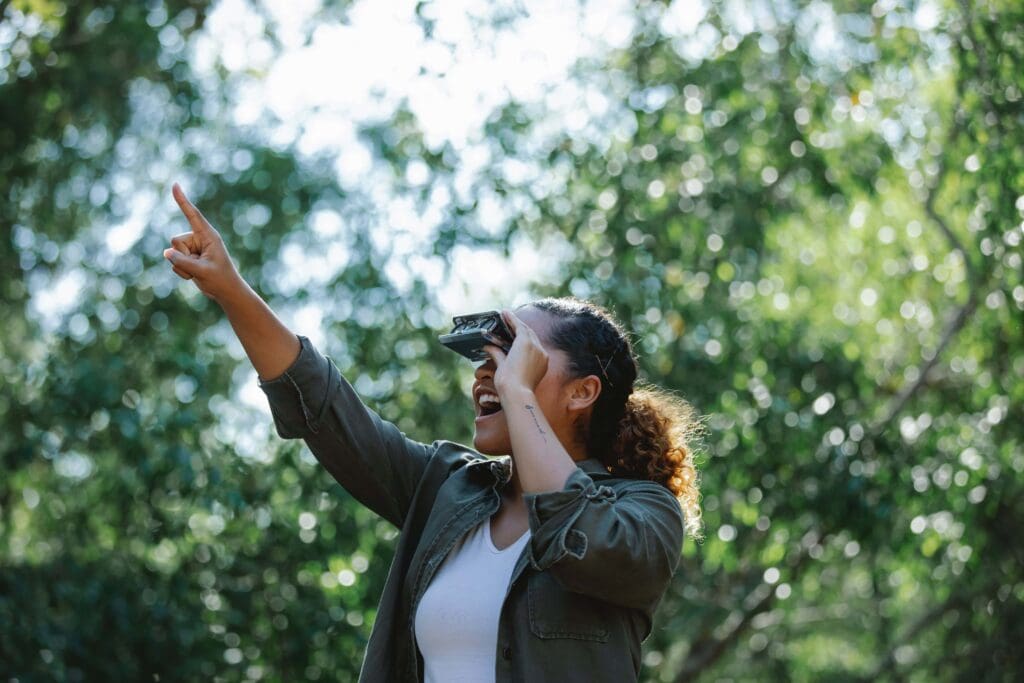
This post may contain affiliate links. For more information, read the full disclosure here.
Ever wondered if you could sharpen your inner mirror, making it reflect more than just the surface of your thoughts and feelings? Well, you’re not alone. Many wonder, “Can introspection be taught?” – Introspection is the art of examining one’s own thoughts and emotions and is as intriguing as it is complex.
But what if it’s not just an inborn trait but a skill that can be honed and developed? Imagine being able to dive deep into the realms of your mind, understanding and navigating your inner landscape with ease.
This isn’t just about self-improvement; it’s about unlocking a level of self-awareness that can transform how you relate to yourself and the world around you.
So, let’s explore whether introspection can indeed be taught and, if so, how you can master this invaluable skill.
What Is Introspection?
Imagine diving deep into the vibrant ocean of your own thoughts and feelings. That’s introspection[1]. It’s all about turning your gaze inward and exploring what’s going on inside your mind and heart. By understanding your emotions, thoughts, and motivations, you’re not just getting to know yourself better but also unlocking a powerful tool for personal growth.
Sometimes, introspection feels like peeling an onion. Layer by layer, you uncover parts of yourself that you didn’t know existed. It might sound daunting, but it’s incredibly rewarding. You become more aware of why you react the way you do and learn how to manage your emotions more effectively.
Historically, the concept of introspection has been at the heart of understanding human consciousness. It began with Wilhelm Wundt, who’s often referred to as the father of experimental psychology[2].
He introduced introspection as a method to dissect the mind into its most basic elements. Imagine sitting in a quiet room, focusing solely on your thoughts and emotions and analyzing them without bias.
Wundt’s approach to introspection was systematic, replicable, and standardized, aiming to make it a scientific discipline. He trained individuals to objectively analyze their own thoughts, focusing on controlled conditions and standardized instructions[3].
The Importance Of Introspection
The true significance of introspection lies in its power to foster self-awareness, a trait highly regarded by psychologists and thought leaders alike.
According to the American Psychological Association[4], self-awareness is crucial for emotional intelligence, which influences your ability to navigate life’s challenges with grace and resilience.
Practicing introspection regularly allows you to:
- Identify your emotional triggers and learn how to manage them.
- Clarify your values and understand what truly matters to you.
- Recognize patterns in your thoughts and behaviors that may be holding you back.
- Cultivate compassion towards yourself, understanding that you’re a work in progress.

But here’s the kicker: Can introspection be taught, or is it an innate gift some people are born with? It’s a bit of both. While some might find it natural to introspect, the good news is that anyone can develop this skill with practice.
Take me as an example – I have to admit that I already had quite a bit of the ability to introspect, but during my Bachelor’s, my teachers kept pushing me (and the other students) to explore my own thoughts, feelings, emotions, characteristics, and skills even more. Now, it’s my second nature, so I’m sure it can be taught.
Can Introspection Be Taught, Or Is It Inborn?
Introspection may seem like a natural ability that some people are just born with. You’ve probably met individuals who always seem to have a profound understanding of their feelings and motives, making you wonder if they have a special gift that you lack. However, it’s essential to recognize that introspection is not solely an inborn trait.
Research from psychology and neurology suggests that while certain personality types may lean more naturally towards introspective practices, the ability to look within is a skill that can be developed over time[3]. Skills in introspection can significantly vary among individuals, influenced by factors such as upbringing, experiences, and even education.
Building introspective skills involves consistent practice, much like any other habit you’re hoping to cultivate in your quest for personal growth. These practices do not require an innate talent but rather a willingness to deeply explore your mind and emotions.
How Can Introspection Be Taught? 6 Tips
Gaining a deeper understanding of oneself isn’t just beneficial; it’s a crucial step toward personal growth and improved decision-making. So, how do you embark on this journey of self-discovery and enhance your self-awareness? Let’s dive into some actionable strategies.
Observe Your Thoughts Without Judgement
Ever feel like your brain is a non-stop commentary track, judging every thought and feeling that pops up? Well, here’s a game-changer: observation without judgment. It’s like watching clouds float by without labeling them as good or bad—just letting them be.
Instead of getting caught up in the drama of your own thoughts, observation without judgment is about stepping back and becoming an impartial observer of your mental chatter. It’s like being your own scientist, curious about what’s going on upstairs without getting swept away by it all.
When you ditch the judgment, something magical happens. You start to see your thoughts and feelings for what they really are: just thoughts and feelings. No need to attach a big story or meaning to them. It’s like cleaning the fog off a mirror—you start to see things more clearly.
And here’s where the real power kicks in. When you observe without judgment, you create space for self-reflection and self-assessment. You can take a step back and ask yourself, “Why am I thinking this? How does it make me feel?” It’s like having a front-row seat to your own inner workings.
Be In Touch With Your Feelings
Acknowledging and understanding your emotions is a cornerstone of self-awareness. It’s easy to dismiss or bury uncomfortable feelings, but recognizing them is the first step toward meaningful introspection. Practice identifying exactly what you’re feeling and why.
Tools like a self-awareness journal can be incredibly helpful in guiding you through this process, helping you to uncover and articulate complex emotions that might otherwise go unnoticed.
Seek Feedback From Others
Trying to untangle the spaghetti mess of your thoughts? Well, here’s a hack: seeking feedback. It’s like getting a fresh pair of eyes on your life story—a perspective you might have never considered.
Instead of trying to decode your own thoughts and behaviors solo, seeking feedback invites others to join the detective squad. It’s like crowdsourcing insights into what makes you tick straight from the people who know you best.
And let’s be real, sometimes we’re too close to the action to see the big picture. That’s where feedback swoops in like a superhero, offering a bird’s-eye view of your inner workings. It’s like looking at yourself in a funhouse mirror—you might see things you never noticed before.
Remember, feedback isn’t just about getting pats on the back or critiques. It’s about sparking self-reflection and self-assessment. You get to ask yourself, “Huh, I never thought about it that way. Why do I do what I do?” It’s having a mini-therapy session without the couch.

Journal And Reflect
Finally, let’s talk about the power of putting pen to paper (or fingers to keyboard) and how it can turbocharge your self-awareness. You don’t have to commit to a daily diary—although that’s totally cool if it’s your thing. Just jotting down your experiences, thoughts, and feelings can work wonders.
When you write stuff down, it’s like hitting the pause button on life for a hot second. You’re forced to slow down and really chew over what’s going on in that head of yours.
And the best part? You get to play detective in your own life. By looking back on what you’ve written, you start to notice patterns and themes that might’ve slipped under the radar. It’s like having a time machine to revisit past versions of yourself and see how far you’ve come.
Answer Questions About Yourself
Delving into self-reflection can be like turning on a spotlight in the dim corners of your mind, revealing insights you never knew were there. By asking yourself probing questions, you’re essentially playing detective, uncovering clues about your inner workings and motivations.
Think of it as having a heart-to-heart with yourself, where you’re both the interviewer and the interviewee. You get to dig deep and explore the why behind your thoughts and actions, shining a light on patterns and motivations that may have been lurking in the shadows.
And here’s the cool part: the more you ask, the more you uncover. It’s like peeling back layers of an onion, revealing new depths of understanding with each question asked. You start to see connections and patterns you never noticed before, like puzzle pieces falling into place.
But it’s not just about the answers you find; it’s about the journey of self-discovery itself. By engaging in this process of self-inquiry, you cultivate a deeper sense of self-awareness and understanding. You start to see yourself not as a passive observer but as an active participant in your own life story.
Here are some great articles that can help you come up with questions to ask yourself:
- 8 Questions To Ask Yourself Every Night For Personal Growth
- 40 Inspiring Journal Prompts For Motivation & Self-Discovery
- 30 Journal Prompts For Overthinking: How To Get Unstuck & Find Clarity
- Journal Prompts For Growth: Unleashing Personal Transformation
Practice Mindfulness
Mindfulness is like hitting pause in a world that’s always on fast-forward. It’s about tuning into the here and now without all the usual self-criticism and worries about what’s next. Picture it as giving your mind a spa day—no judgment, just chilling and observing what’s going on inside.
When you practice mindfulness, you’re basically giving yourself a front-row seat to the show, which is your thoughts, feelings, and sensations. It’s like watching a movie of your own mind, where you start to notice patterns and habits you didn’t even know you had.
But it’s not just about watching the show; it’s about becoming the director of your own life. By staying present, you start to understand yourself on a deeper level. You figure out what makes you tick, what stresses you out, and what brings you joy.
And here’s the cool part: mindfulness isn’t just something you do on a yoga mat or during a meditation session. It’s a superpower you can take with you everywhere, from the classroom to the gym to the dinner table. It’s like having a secret weapon against stress and overwhelm.
Conclusion On Can Introspection Be Taught
Mastering introspection is more than just a skill—it’s a journey that can enrich your life in countless ways. By embracing the strategies outlined, from journaling to seeking feedback, you’re setting yourself on a path of profound self-discovery and personal growth.
Remember, it’s not about reaching a destination but about the insights and understanding you gain along the way. So, take it one step at a time, be patient with yourself, and watch as the world inside you unfolds in beautiful, unexpected ways.
